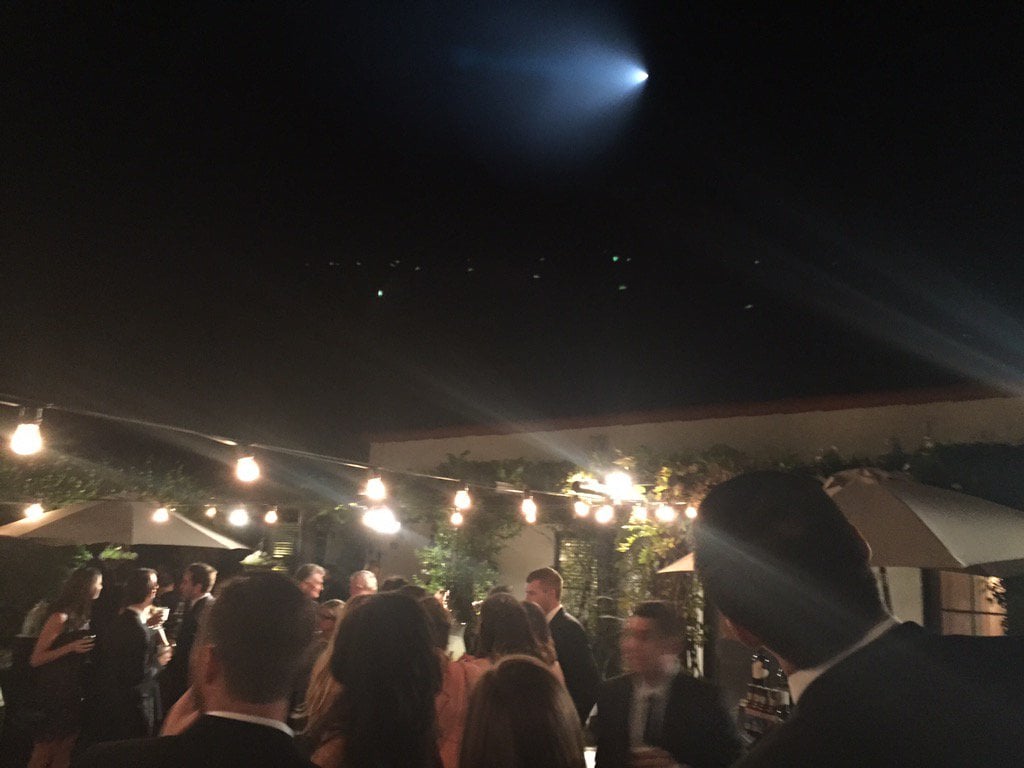Southern California was freaking out this past weekend when this appeared in the skies:

A Trident missile the Navy tested off the Pacific coast was visible Saturday night from Twitter user @Oleslie18’s wedding in Los Angeles county.(Source: @Oleslie18 )
People took to social media and police hotlines to report the unidentified flying object. I know, the west coast is particularly ripe grounds for UFO spottings. However, the spectacular visual was due to terrestrial causes: sunlit exhaust from an (unarmed) submarine-launched intercontinental ballistic missile (SLBM) test launch.
This explanation, perplexingly, seemed to be quite as exciting as the idea that aliens might be making their move.
The test was described in the press as “classified” and “top secret.” Phil Plait, of the Bad Astronomer who tackled the mystery for Slate, tweeted:
While it’s not every day that your average citizen gets a look at the U.S. nuclear weapons machinery, such tests are not rare events. The Trident II D5 submarine-launched ballistic missile is actually a very well-tested system. Its test in February marked 155 successful tests since its design was completed, and if all went well, this would be the 156th. That’s an average of six tests a year. (Some of these take place in the Atlantic test range.)
If it were truly top secret and unannounced, this would have been a cause for concern.
However, while the Trident missile test may not have been announced in a way that would have headed off the public’s curiosity (the LA Times reports that the Navy was surprised at how bright the launch was), the launch wasn’t top secret. Standard practice for missile launches, classified or not, is to issue a notice to airmen and mariners to clear the air and seas under the launch path.
Additionally, and more importantly, the United States and Russia are bound by a bilateral agreement, which has been elaborated over the years, to notify each other in advance of land- and submarine-based missile launches, having recognized the role of such notifications in “reducing the risk of nuclear war as a result of misinterpretation, miscalculation, or accident.” In addition to this bilateral agreement, the United States is a subscriber to the Hague Code of Conduct Against Ballistic Missile Proliferation, which asks subscribing states to exchange pre-launch notifications of ballistic missile and space launch vehicle launches. China and Russia have negotiated a similar bilateral agreement about prelaunch notification, though the United States and China have not quite got there yet.
This is a very good thing to do, as nuclear weapons states have an obligation to reduce and eventually eliminate the enormous potential for mistakes and accidents with nuclear weapons.

